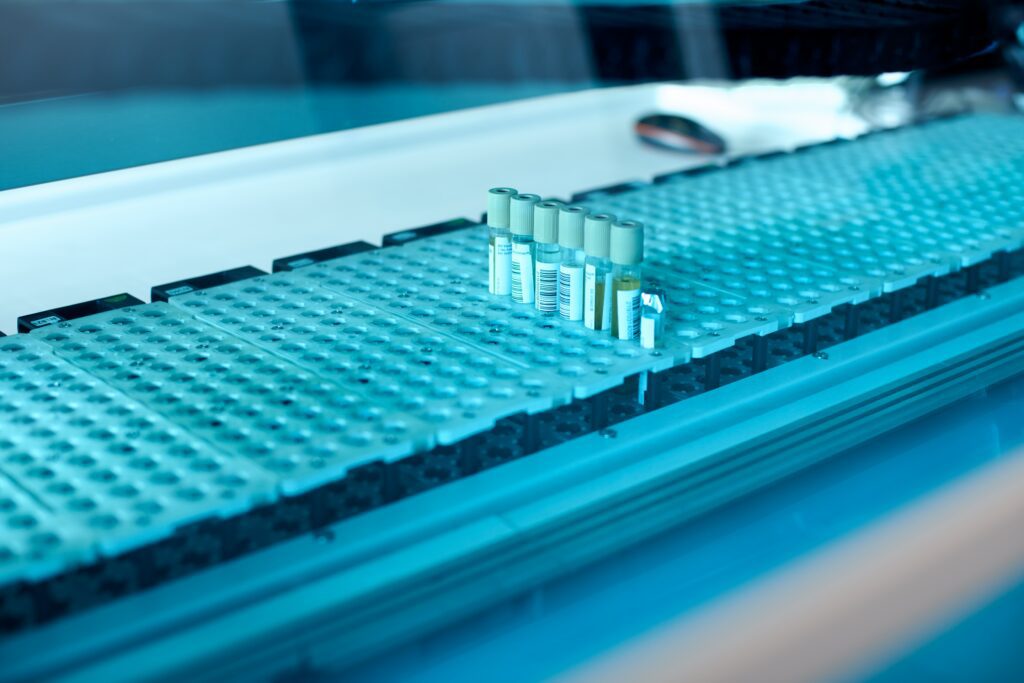What is a Crime Lab?
Crime labs work for the government to provide laboratory and forensic services related, most commonly, to crimes. In addition to being referred to as Crime Scene Investigation (CSI) units, they can also be called scientific analysis bureaus, forensic sciences sections, forensic services, and crime laboratories, among others.
According to A.R.S. 41-1730, in order to be considered a full-service crime laboratory, crime labs must:
- Be operated by a criminal justice agency of the state or political subdivision.
- Have at least one full-time forensic scientist with at least a bachelor’s degree in a physical or natural science.
- Be properly accredited.
- Provide at least six of the following forensic disciplines, with at least one being DNA, digital forensics, or drug toxicology – trace evidence, blood or breath alcohol, firearms and toolmarks, crime scene processing, latent print comparisons, seized drugs, DNA, digital forensics, and drug toxicology.
This statute also provides for the establishment and use of the department of public safety forensic fund.
How do Crime Labs Work for Specific Crimes?
- Drug Cases – In cases where drugs are alleged to be involved, a crime lab will be able to test substances to determine what they are, whether they are legal or not, the condition of the substance, and its quantity. This will be accomplished through controlled substance analysis, sometimes referred to as seized drug analysis.
- DUI Cases – In cases that may involve DUI, toxicology will be utilized. This is often done through blood or urine samples, which can show the presence of alcohol and all types of drugs.
- Cases with Weapons – Firearm and toolmark analysis allows a crime lab to determine whether or not a firearm was able to be discharged, whether or not a bullet/cartridge was fired from it, and in what form. The crime lab may also be able to determine the type of gun used based on bullet casing markings and restore a disguised serial number of a firearm. They may also be able to determine what type of tool was used in a case based on the markings left behind.
- Sexual Assault Cases – DNA (biology) testing is utilized in sexual assault cases. DNA linked to a crime is entered into the Combined DNA Index System (CODIS) through the FBI to help locate serial offenders or solve unsolved crimes. Arizona currently has seven CODIS laboratories.
Where are the Crime Labs?
In Arizona, the Arizona Department of Public Safety’s Scientific Analysis Bureau provides forensic services to all of Arizona’s police agencies. Their four laboratories, located in Phoenix, Flagstaff, Tucson, and Lake Havasu City, analyze evidence, provide crime scene assistance, safely store items of evidence, and provide training and expert testimony. Specifically, the bureau handles:
- Blood alcohol testing (such as needed in DUI cases)
- Toxicology
- Controlled substance analysis (such as needed in drug cases)
- Latent prints
- Firearm and toolmark analysis
- Trace evidence
- Questioned document analysis
- DNA services (including sexual assault kits)
- Crime scene field services (photography, evidence collection, scene processing, etc)
In addition to Arizona DPS’ Scientific Analysis Bureau, larger cities within the state may also run their own crime labs. This includes:
Phoenix Police Department Laboratory Services Bureau
Located in downtown Phoenix, the crime lab is a nationally accredited forensic laboratory. It handles such matters as quality assurance, controlled substances, crime scene response, evidence screening, firearms, DNA, latent prints, toxicology, and trace evidence.
Mesa Police Department Forensic Services
A nationally accredited forensic laboratory, Mesa’s forensic services work with the Mesa Police Department as well as other law enforcement agencies. They handle matters such as biology, controlled substances, toxicology, firearm/toolmark impressions, fingerprints, and crime scene and evidence processing.
Tucson Police Department Crime Laboratory
Tucson’s crime laboratory is the oldest crime lab in the state of Arizona, founded in 1960. Additionally, they were one of the first municipal crime labs in the entire country to gain national accreditation by the American Society of Crime Laboratory Directors-Laboratory Accreditation Board. Tucson’s crime laboratory has eight operational units: firearms, forensic biology (DNA), latent print processing, latent print comparison, forensic electronic media, fire debris, seized drugs, and toxicology.
Chandler Police Department Forensic Services Section
With a mission to provide accurate and impartial scientific support to the Arizona criminal justice community, Chandler Police Department’s forensic services section is a nationally accredited forensic testing laboratory. They specialize in crime scene response, toxicology, seized drug/controlled substance analysis, friction ridge comparison, latent print processing, and AFIS ten print.
RIDEOUT LAW GROUP
With offices in Lake Havasu City and Scottsdale, our firm serves the entire state of Arizona, with a particular focus on criminal defense, family law, and juvenile cases.
Our goal is for the best outcome for your criminal case, which can include:
- charges that are reduced or dropped.
- top experts reviewing your case.
- aggressive negotiations with the prosecution for plea bargains.
- fines or probation in lieu of jail time.
At Rideout Law Group, our attorneys are able to expertly examine the evidence in your case to provide a strong strategy for argument that leads to an outcome that is most favorable to you. We have experience in all types of criminal cases for both adults and juveniles, with positive outcomes both in plea negotiations as well as jury trial settings.
Call us today for a free consultation at 480-584-3328.
